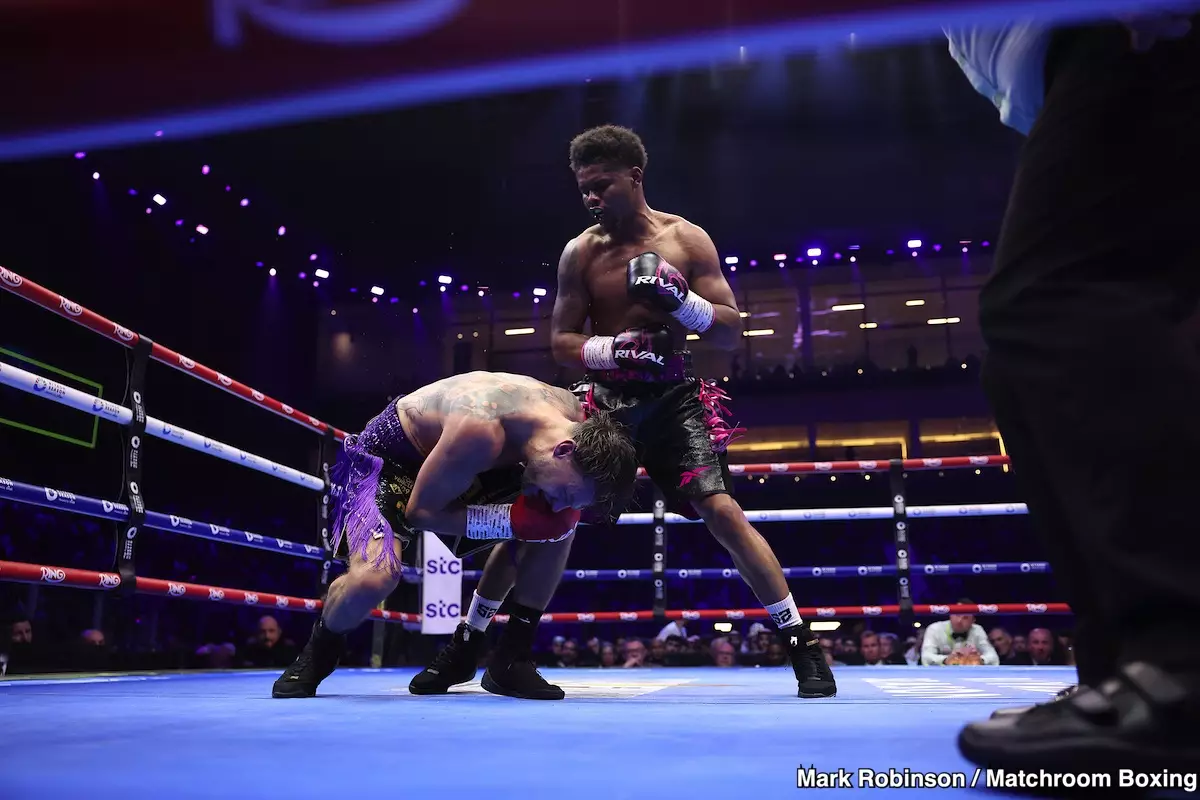Shakur Stevenson, the reigning WBC lightweight champion, showcased his superior boxing skills with an impressive technical knockout victory over Josh Padley on Saturday night in Riyadh. The fight, however, unveiled several crucial points about the challenges and perceived inadequacies in Stevenson’s journey towards securing a high-profile clash with Gervonta “Tank” Davis. Despite the victory, questions loom over whether Stevenson’s performance was compelling enough to warrant the spotlight or the financial investment from promoters, particularly Turki Alalshikh, who is eager to stage a showdown between the two champions.
Stevenson’s ability to land jabs and power shots seemingly at will against a passive Padley painted a picture of dominance. However, this could easily be misconstrued as “target practice,” raising doubts about the legitimacy of his claim to be ready for a fight against Davis, who presents a significant step up in competition. The fight witnessed Stevenson struggling with an already injured left hand, relying heavily on his right throughout the latter rounds. Such limitations pose an alarming red flag, especially considering the caliber of opposition he faces going forward.
As the ninth round unfolded, Stevenson dropped Padley three times, leading to an abrupt stoppage by the referee. While the end result suggests a resounding victory, it soon became clear that Padley’s lack of speed and power turned this bout into a mismatch, thereby diminishing the significance of Stevenson’s achievement. Critically observed, Stevenson’s relatively average performance against an inexperienced challenger raises concerns about his readiness to take on more challenging opponents, further fueling skepticism surrounding the feasibility of a fight with Davis.
In the aftermath of the fight, Stevenson expressed confidence about the possibility of facing Davis, stating, “Turki wants to make the fight, too. It’s the biggest fight in boxing.” This proclamation, while ambitious, is burdened with skepticism. Davis represents a daunting challenge; his explosive fighting style and aggressive demeanor may not sync well with Stevenson’s otherwise calculated approach. Will Turki Alalshikh see merit in promoting a matchup when there are other more dynamic fighters in the lightweight division?
Moreover, Stevenson’s pursuit of recognition from notable fighters such as Terence Crawford, who referred to him as his “little brother,” illustrates his yearning for validation within the sport. While such endorsements enhance his profile, they do not substitute the substance required to demonstrate he merits a shot at one of boxing’s most alluring paydays.
Ultimately, while Stevenson remains an elite talent within the boxing landscape, the urgency to deliver a stand-out performance against a formidable opponent like Davis is more pronounced than ever. After all, mere victories against lesser competition are insufficient to propel him into the limelight he seeks. As the lightweight division continues to evolve, Stevenson’s next steps will be pivotal; they will not only define his career trajectory but potentially his legacy. The time has come for Stevenson to seek out challenges that truly test his mettle, ensuring he does not remain complacent with easy victories that could undermine his potential greatness.

